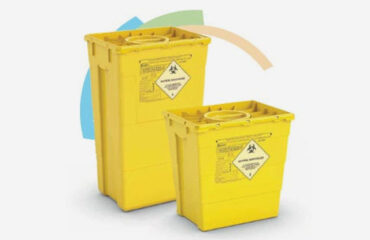Reclaim Waste Things To Know Before You Get This
Reclaim Waste Things To Know Before You Get This
Blog Article
Getting The Reclaim Waste To Work
Table of ContentsThe 8-Minute Rule for Reclaim WasteWhat Does Reclaim Waste Do?10 Simple Techniques For Reclaim WasteThe Best Guide To Reclaim WasteThe Greatest Guide To Reclaim Waste
Domestic sewage waste refers to the waste and products from a residential septic tank. The appropriate monitoring and disposal of domestic sewer waste need fluid waste to be moved to a sewer treatment plant where the correct methods and tools are applied to purify and dispose of waste.
Industrial waste often includes prospective threats, such as flammable products or a mix of liquid and strong waste products, and needs an advanced and comprehensive disposal process. The disposal of commercial waste normally includes the filtration of waste prior to transport to guarantee risk-free and correct disposal. Hazardous waste is created from results and drainage of industrial procedures and production.
This type of waste can not use the exact same sewage administration transport or procedures as septic or industrial liquids. The hazardous waste administration process needs the inspection and screening of fluid waste before it goes through the disposal process (industrial wastewater treatment). Overflow waste is the liquid waste that comes from runoff and excess stormwater in very inhabited locations or cities
Runoff waste can trigger contamination and flooding otherwise taken care of appropriately. Discover more about sewage system cleansing and waste management. Making sure correct waste management can protect against disasters and minimize ecological injury. Both people in property settings and specialists in industrial or production markets can profit from recognizing the procedures and regulations of fluid waste administration.
The Main Principles Of Reclaim Waste
Call PROS Solutions today to discover our waste management and disposal services and the appropriate ways to take care of the fluid waste you produce.
(https://www.find-us-here.com/businesses/Reclaim-Waste-Laverton-North-Victoria-Australia/34166924/)Do you understand what happens to your water when you disengage, purge the commode or drain the cleaning maker? No? Well, it deserves knowing. This supposed 'wastewater' is not only an essential resource however, after treatment, will be launched to our land, rivers or the sea. Used water from toilets, showers, bathrooms, kitchen sinks, washings and commercial processes is called wastewater.

water used to cool down machinery or clean plant and tools). Stormwater, a form of wastewater, is drainage that streams from farming and urban locations such as roofing systems, parks, yards, roads, courses and seamless gutters into stormwater drains pipes, after rain. Stormwater streams neglected straight to local creeks or rivers, ultimately getting to the sea.
Unknown Facts About Reclaim Waste
In Queensland, many wastewater is dealt with at sewage treatment plants. Wastewater is moved from residential or commercial sites through a system of sewers and pump terminals, recognized as sewage reticulation, to a sewer therapy plant. City governments construct, preserve and operate most sewage treatment plants. Operators are certified under the Environmental Management Act 1994 to release cured wastewater at an appropriate environmental requirement into waterways.
The Department of Natural Resources encourages regional governments concerning managing, operating and keeping sewerage systems and treatment plants. In important source unsewered areas, city governments may need homeowners to install private or home sewer therapy systems to treat domestic wastewater from commodes, cooking areas, shower rooms and laundries. The Department of Natural Resources authorizes the use of home systems when they are shown to be reliable.
A lot of stormwater gets no treatment. In some brand-new class, treatment of some stormwater to remove trash, sand and gravel has actually begun using gross contaminant catches. Wastewater therapy occurs in 4 stages: Eliminates strong matter. Bigger solids, such as plastics and other objects mistakenly released to drains, are removed when wastewater is gone through screens.
Utilizes small living microorganisms recognizes as micro-organisms to break down and eliminate continuing to be liquified wastes and fine fragments. Micro-organisms and wastes are included in the sludge.
The 5-Minute Rule for Reclaim Waste
Nutrient removal is not offered whatsoever sewer treatment plants due to the fact that it needs expensive specialised equipment. It is ending up being much more common in Queensland. Clear fluid effluent created after treatment might still have disease-causing micro-organisms. If this effluent is launched right into waterways such as rivers or the sea, the micro-organisms will at some point pass away out.

A lot of wastewater moves into the sewage system. Under the Act, local federal governments administer authorizations and licences for ecologically relevant tasks (Ages) entailing wastewater releases that could have a regional influence.
The Reclaim Waste Ideas
Surveillance offers accurate details concerning water high quality and can validate that licence problems are being fulfilled. The details acquired via surveillance supplies the basis for making water quality decisions.
Report this page